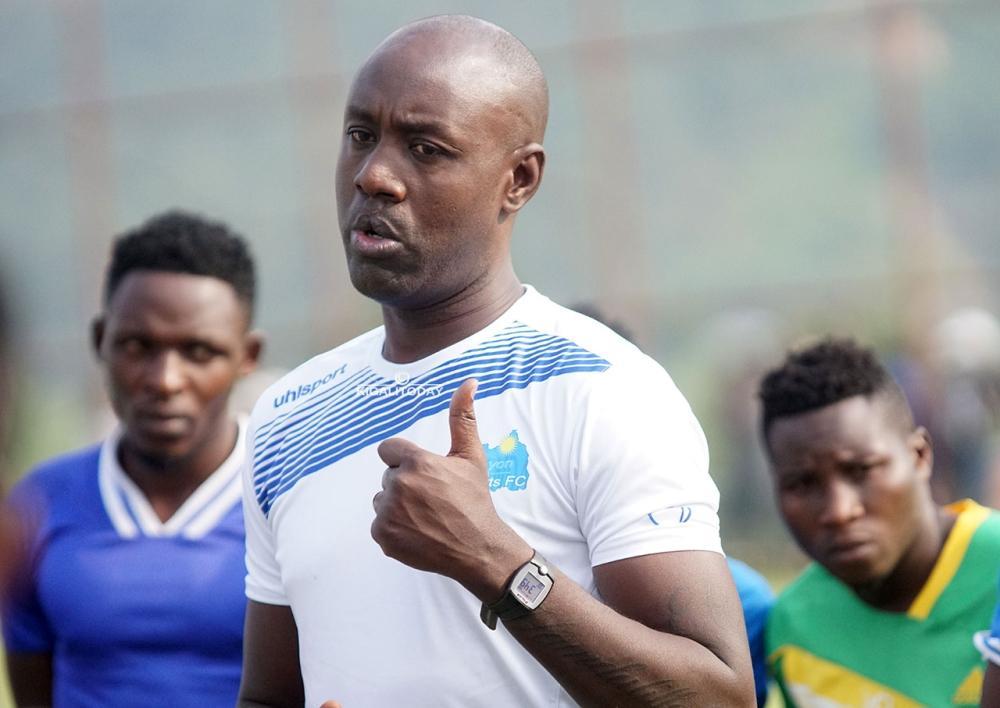Africa-Press – Rwanda. In Rwanda, the silence and absence of former football internationals in the public sports space is both deafening and troubling.
While countries like England, Nigeria, South Africa and even Uganda proudly showcase former players as respected pundits, commentators, and coaches, Rwanda’s own ex-internationals seem to fade into obscurity once they retire from the game.
The nation is missing out on an invaluable resource — voices with firsthand knowledge of the sport, who could elevate the quality of sports media and coaching if meaningfully engaged.
Unlike Jimmy Mulisa, one of the few Rwandan ex-players who has transitioned into coaching, most former internationals have either sought opportunities abroad or vanished from the sporting radar altogether.
Jean Baptiste Mugiraneza aka Miggy was making his way up into coaching but his career has hit a rocky start with allegations and subsequent conviction of match-fixing.
He has been banned for up to 12-months. Whether he is able to get over this tag as a convicted match-fixer, and returns to resume his career, is another story.
For me, he’s done as a coach before he even got started. His credibility has been damaged, and even when I believe in giving people a second chance at redemption, but who will (ever) trust Miggy, again? Credibility, once lost…
Then there was former Amavubi talisman/skipper Olivier Karekezi, who had a short-lived, and disastrous stint with Rayon Sports. He burnt his fingers in a few months, and we may never see him back on the touchline as a pro coach.
This lack of visibility of former players and coaches has created a huge gap/void in Rwanda’s sports system/industry.
Media programs, match commentaries, and tactical analyses are often left to enthusiastic journalists and fans, many of whom lack the professional experience to offer deeper insights into the game.
In contrast, major footballing nations understand the value of leveraging the expertise of former players.
In England’s Premier League, a championship that we all love because it’s the most popular in the world, almost every major television network employs ex-players like Gary Neville, Ian Wright, and Micah Richards etcetera…
These former professionals not only provide informed commentary but also add credibility and draw audiences. We miss that in Rwanda.
Their insights often shape public opinion, influence younger players, and enrich the football discussion. The same is true for other sport, in those places we admire and aspire to emulate.
So why does Rwanda fail to harness this rich human resource? Several factors may be at play.
Is it a problem of lack of education for majority of the former players? Lack of communication skills? Small analytical brains? Or lack of self-belief, and confidence to articulate issues?
Firstly, from where I stand, many ex-players may lack the formal education or communication skills required for media work.
While their talent on the field is/was undeniable, translating that into articulate, engaging analysis on radio or television requires a different skill set.
Secondly, the country’s media and football institutions have not prioritized capacity-building for retired athletes. This is a disservice to all parties.
In many cases, there is no structured transition plan for players nearing the end of their careers.
Unlike in countries where media houses offer mentorship or where football associations sponsor coaching courses and broadcasting, Rwandan players often retire without clear post-career pathways.
Confidence and self-belief also play a critical role. The absence of visible role models who have successfully transitioned into media or coaching creates a psychological barrier for many ex-players.
Without examples to follow or encouragement from within the system, many retreat into private life or leave the country altogether in search of opportunity. The unlucky ones end up in drugs/narcotics, alcohol and women, and finally death.
Yet, former players are uniquely positioned to enrich Rwanda’s sporting discourse. What is rhe use of investing so much in making them, and after ‘using’ them for a couple of years, we discard them off? Just like that! Poor business.
Their deep understanding of tactics, locker-room dynamics, and high-pressure decision-making offers a dimension of analysis that journalists, however well-versed, often lack.
They can explain not just what happened on the pitch, but why — adding depth, color, and credibility to the commentary.
Incorporating ex-internationals into media and coaching is not just about appearance or sentimentality. It’s a sensible move. It can improve fan engagement, raise the quality of sports debate, and inspire young players.
It can also provide economic opportunities for former athletes who might otherwise fall into poverty, or worse, destructive paths such as drug use — a tragic fate that has befallen some.
To reverse this trend, Rwanda needs a deliberate and collaborative strategy.
The Rwanda Football Association (FERWAFA) as well as other local sports governing bodies, local media houses, and the Ministry of Sports should create programs that train and mentor ex-players in media and coaching.
Scholarships for sports broadcasting, internships at radio and TV stations, and access to CAF and FIFA coaching badges could be game-changers.
Knowledge is power as they saying goes:
To excel as a sports analyst or commentator, one needs a blend of deep sports knowledge, strong communication skills, and the ability to analyze and blend information effectively.
A good pundit, analyst or commentator must have good understanding of the game, excellent verbal and written communication, the capacity for quick thinking and storytelling, and the ability to build rapport with audiences.
Former players bring a unique and valuable perspective to sports analysis due to their direct experience and insider knowledge.
Hiring even a handful of ex-players as pundits or co-commentators during live games could transform the viewing experience and give much-needed legitimacy to local broadcasts.
Rwanda’s ex-internationals are not, and should not be just retired athletes; they are a potential goldmine of knowledge, passion, and experience.
Letting them disappear into obscurity is a waste — one that the Rwandan sports sector can no longer afford. It’s a win-win, either way.
For More News And Analysis About Rwanda Follow Africa-Press






